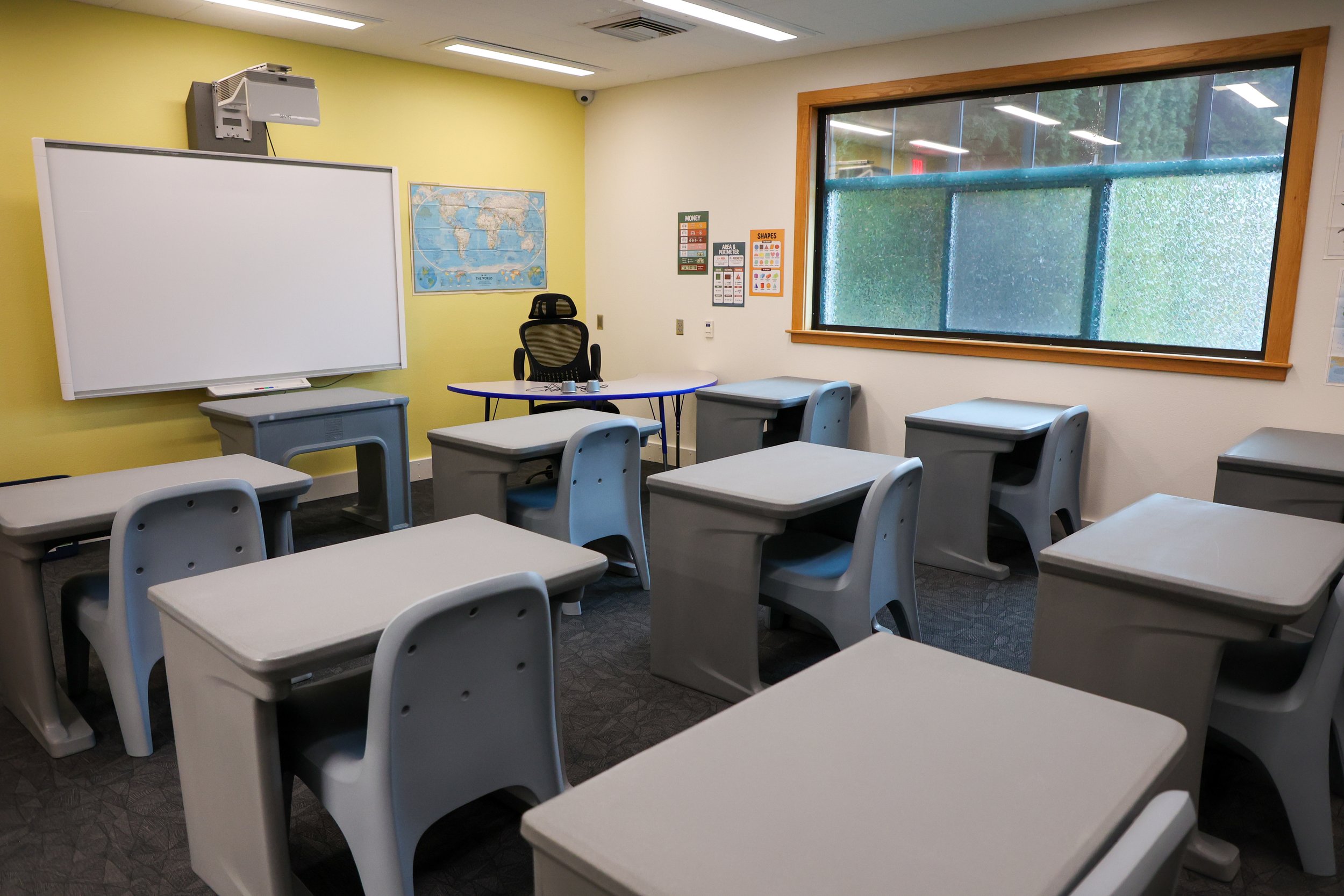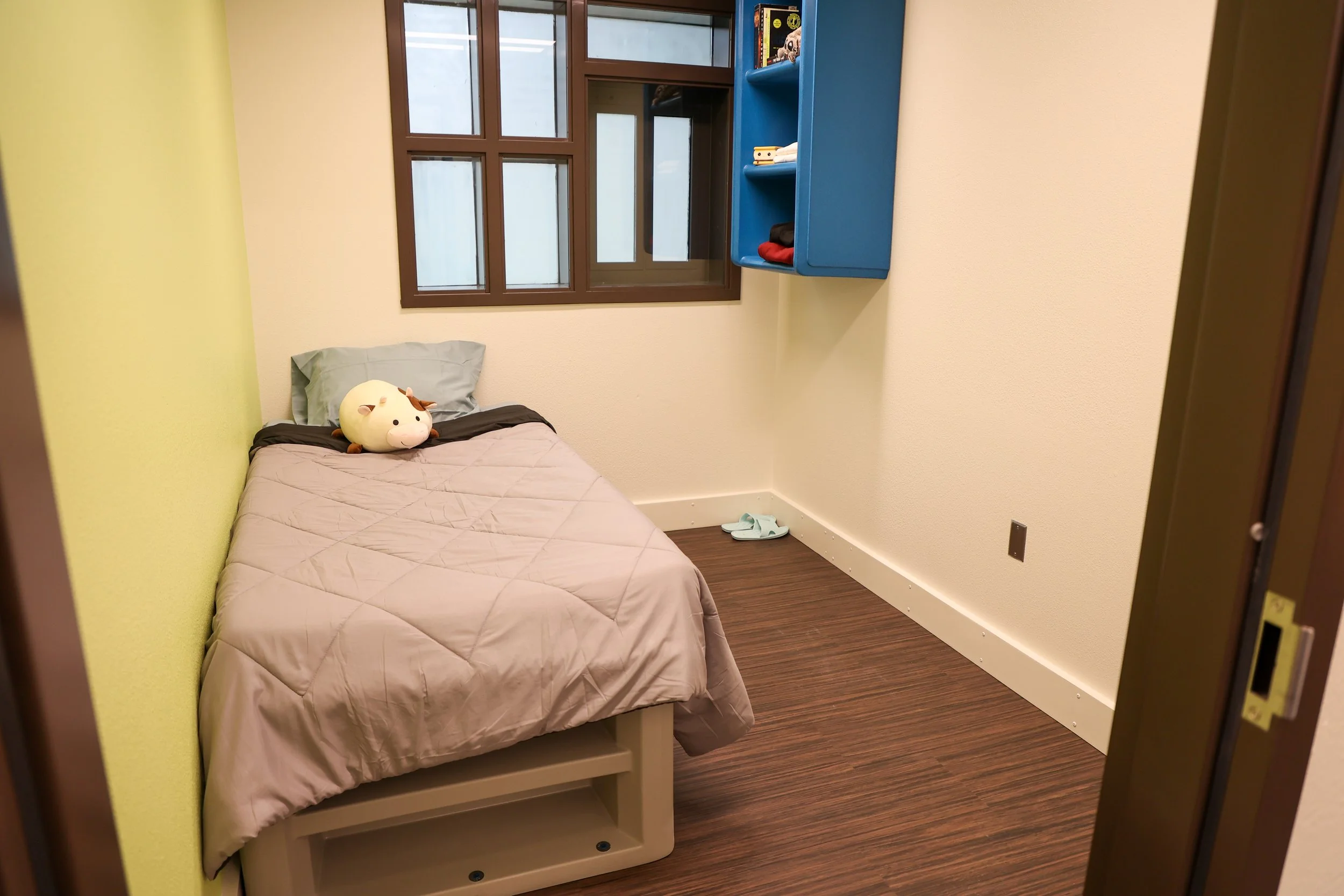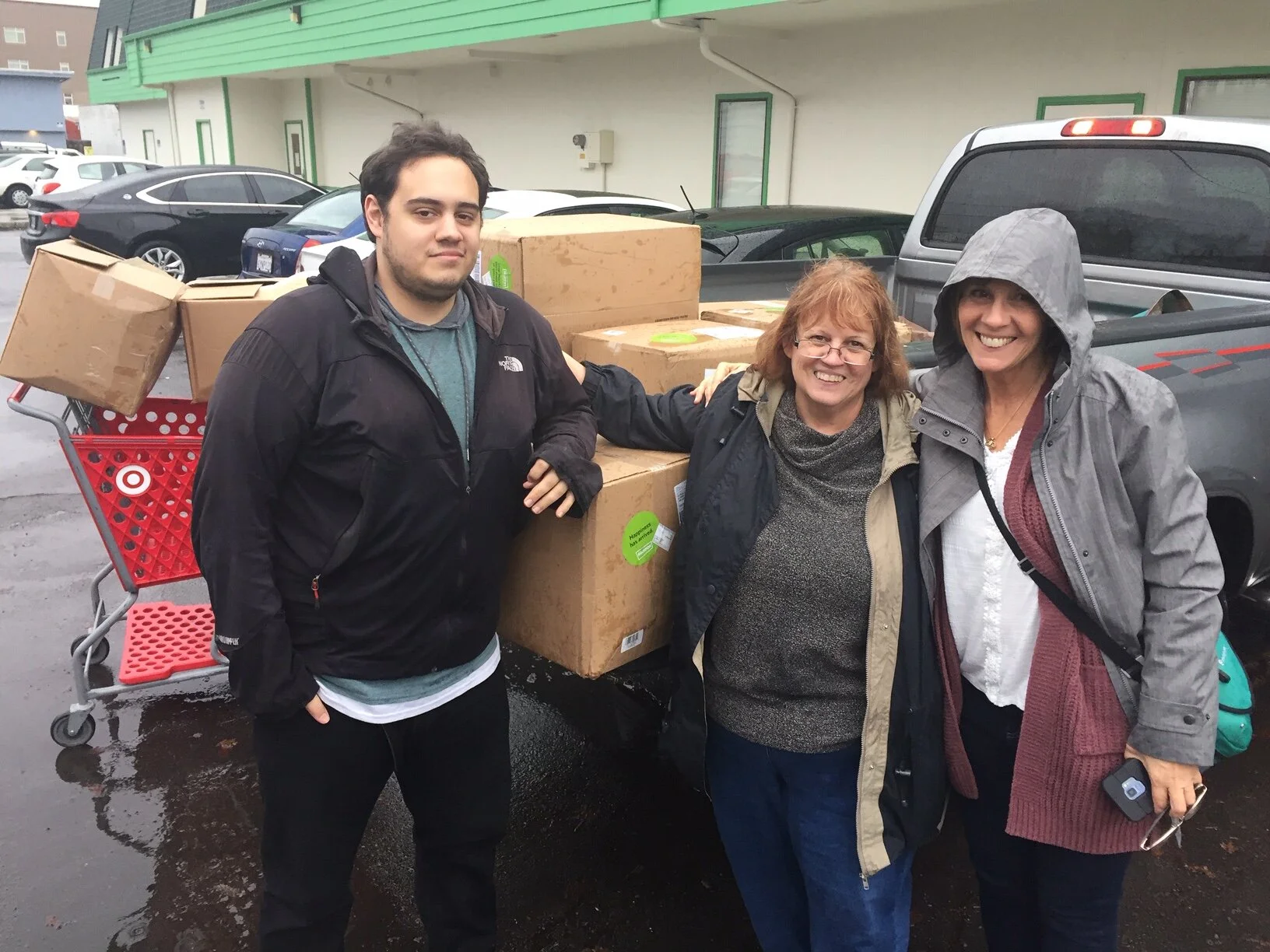RCC West campus
Regional Crisis Center - East & West Locations
Program phone (West): 541-743-2611
Address: 550 River Road Eugene, OR
Program phone (East): 541-393-1440
Address: 2655 Martin Luther King Jr. Blvd, Eugene, OR
Please note, for youth placement: The Regional Crisis Center contracts primarily with the Department of Human Services for youth placement; these referrals come from the DHS Focus Team. Additionally, the East campus contracts with the Oregon Youth Authority. The West campus can contract with CCOs directly for some beds. These referrals must come from a CCO Care Coordinator, we do not accept direct referrals from families or other caregivers at this time.
Looking Glass Regional Crisis Center provides residential, subacute mental health treatment services for youth of all genders, ages 12 to 18. The length of stay for youth can vary based on clinical need and treatment progress. Upon successful completion of the program youth will discharge to a community based setting.
RCC West campus virtual tour
Components of the Regional Crisis Center include:
Residential Treatment
The Regional Crisis Center provides 24-hour supervised group living combined with clinical treatment in a therapeutic setting. Youth learn new skills and behaviors, and as they increase their responsibility, they are rewarded with privileges appropriate to the recovery process. Youth and families work with counselors to create individualized service and support plans to determine their goals and the activities to achieve them. These plans address areas such as mood and behavior regulation, social skills, and family centered relational therapy.
Mental Health Treatment
The program will utilize evidence based practices (EBP’s) to support youth within a structured and therapeutic environment. Under the guidance of the Clinical Director and the Medical Director, the program provides a treatment model conducive to stabilization and progress specific to Individual Service and Support Plans. All team members will be trained in the use of Collaborative Problem Solving and have access to additional EBP’s based on individual client needs. Team members will also be trained in the use of the crisis intervention model CPI/NCI (Crisis Prevention Institute/Non-Violent Crisis Intervention).
Substance Use Disorders Treatment
RCC East campus virtual tour
Regional Crisis Center partners with trained staff from other Looking Glass programs to provide treatment for substance abuse and dependence issues, if needed. Treatment may include individual and group work.
Academic Instruction/Education
The state-certified on-site school provides lessons in language arts, math, health education, living skills, speech/communications, and physical education. Some youth prepare for GED tests while others earn credit toward high school diplomas.
Family Counseling
A youth’s family and/or caregivers are integral to successful treatment. Clinicians meet regularly with youth and their identified caregivers to assist with communication and conflict resolution within the family dynamic. Youth and families will be building on already existing positive interactions and supports. Parents and families are strongly encouraged to spend time observing and visiting the program. Home visits can be scheduled so that families can make use of skills introduced in the program either at home or with the family.
Images of our RCC West campus:
Images of our RCC East campus:




























